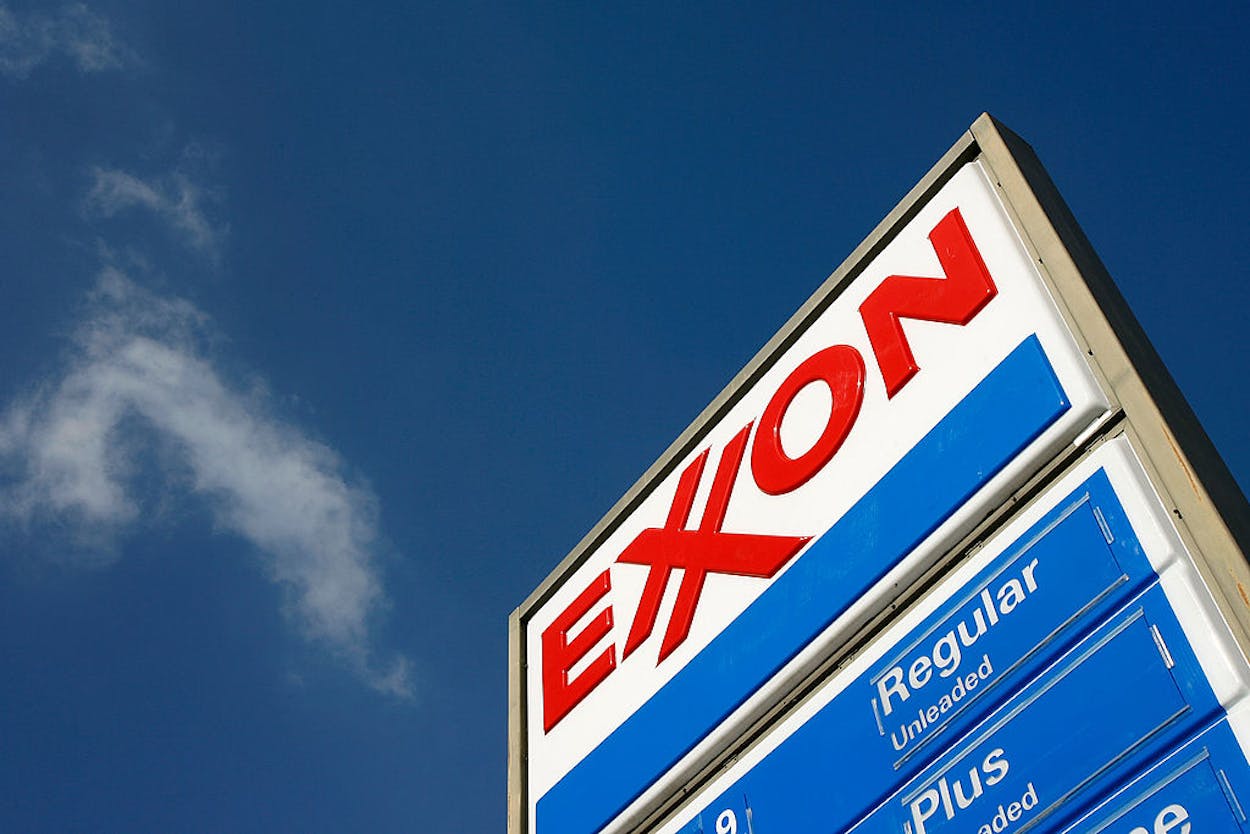ExxonMobil is no longer the top energy company in the world, at least according to one annual power ranking. The Irving-based company lost its grip on first place in the Platts Top 250 energy company rankings after being the top dog for twelve straight years. The new power rankings came out last week, and Exxon was knocked from the top spot by state-owned Russian company Gazprom, falling all the way down to ninth, according to Yahoo Finance. San Antonio-based Valero was the only other U.S. company in the top ten, at number eight on the list, down from number three last year.
According to Yahoo, Gazprom flew up the rankings because of its state ownership and its captured market in Europe for its natural gas, as well as its ability to weather sanctions, regulatory threats from the EU, and low oil and gas prices. Exxon was hit particularly hard by a drop in oil prices, suggests Platts.
“Utilities, by their nature, are are natural monopolies, because obviously you don’t have competing wires coming into your house,” Ed Hirs, an energy economist at the University of Houston, told Platts. “The government agencies allow them to make profit over their costs. In an environment like we have had this past year, those companies such as ExxonMobil and Chevron who are exposed to the commodity price environment, you would expect them to fall behind versus those companies that have a government license to make a profit.”
It’s been a tough year for Exxon. The oil giant lost its longtime CEO, Rex Tillerson, to the White House in January, when he was tapped to serve as President Donald Trump’s Secretary of State. The company has also experienced a few high-profile hiccups of late.
In April, Exxon suffered a major blow in its attempt to stymie state investigations by attorneys general of New York and Massachusetts into the company’s alleged climate change fraud, when a federal judge kicked the company’s legal challenge out of a Texas court and back to New York, where Exxon will have a much harder time trying to block the AG’s investigatory efforts (last month, a New York court ordered Exxon to comply with a subpoena requesting potentially compromising audit documents).
Later in April, the U.S. Treasury Department rejected Exxon’s request to let the oil giant work with a Russian state-run energy company to drill in the Black Sea, thus keeping in place sanctions that have cost the company $1 billion in lost business.
In June, President Donald Trump announced that the U.S. planned to leave the Paris climate accord, despite Exxon’s urging that the U.S. is “better off with a seat at the table.” Exxon and other oil giants wanted the U.S. to stay in the climate accord so they would remain front and center when nations in the agreement work to reduce carbon emissions largely produced by big oil. But pleading letters to Trump from Exxon CEO Darren Woods apparently fell on deaf ears.
And in July, Exxon was fined $2 million by the Treasury Department for violating U.S. sanctions imposed on Russia in 2014, while Tillerson was CEO. “Exxon Mobil demonstrated reckless disregard for U.S. sanctions requirements,” the Treasury said in a report announcing the penalty, according to the New York Times. “Exxon Mobil caused significant harm to the Ukraine-related sanctions program.”
Exxon also fell in this year’s Fortune 500 Companies list, dropping two spots from last year to number four. “ExxonMobil’s once impregnable balance sheet is showing holes, and the company has tumbled a few spots compared to last year’s list,” Fortune wrote when the list was released in June. “ExxonMobil remains the industry benchmark for everything from profitability to safety standards, but its rocky relationship with climate change remains its Achilles’ heel.”
- More About:
- Energy
- Rex Tillerson






